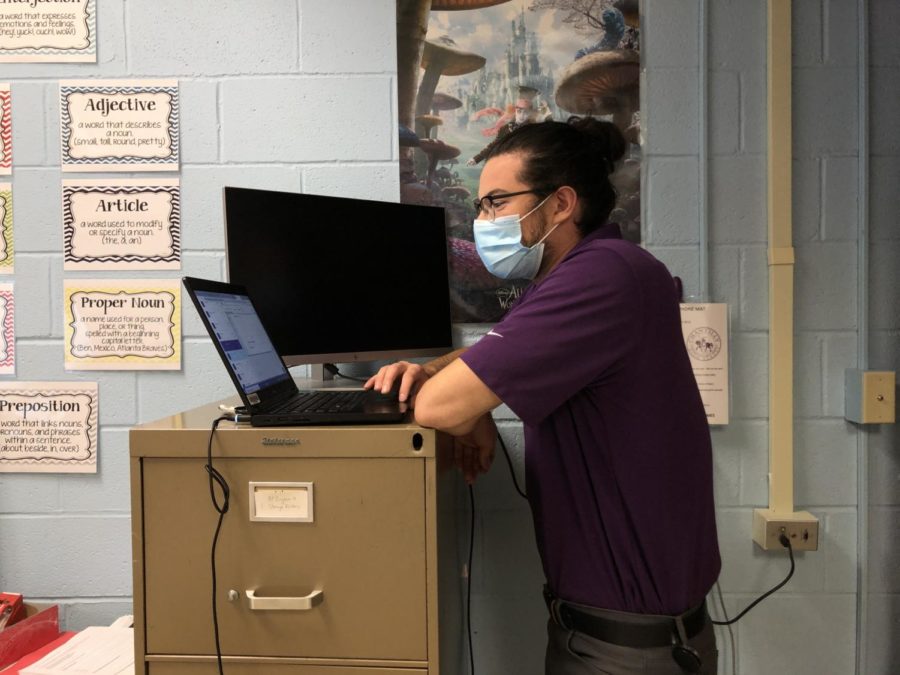After hours: teachers prepare for work with the support of colleagues
English teacher James Steck grades assignments in his classroom after school on Tuesday, Oct. 12.
November 5, 2021
A day at high school is more than seven hours of classes for both students and teachers. However, there is more to a teacher’s work than their moments in the spotlight spent in their classes. Like students, teachers occupy their after-school hours with homework of their own, such as grading, lesson preparation and department meetings.
“There’s a lot of preparation that I have to do, including reviewing and getting homework ready,” social studies teacher Ryan Childress said. “It can be hard when you are trying to make sure that everything is ready to go.”
The workload of a teacher is heavier than it may seem. According to Forbes, teachers work an average of 47 hours a week, with one out of ten working more than 65 hours a week. However, the schedule is not the only thing that makes their lives busy.
“Outside of teaching and grading, there are other responsibilities that I have to take care of in terms of data collection [and] responding to multiple people throughout the school,” English teacher James Steck said. “You’ve got to make sure you are contacting parents if a student is falling behind, and there’s a lot of other communication.”
Department meetings are held on a regular basis for teachers to talk about course content, teaching strategies and regulations within the county. They map out what knowledge and skills students need to learn, from ninth to twelfth grade.
Many teachers and other faculties also choose to spend some quality time within their departments by having lunch together or celebrating birthdays. Other times, they simply put their heads together to solve a problem.
“I love the people I get to work with,” student counselor Alice Whitener said. “If I’m feeling a little low or kind of tired, [and] someone else is feeling more up, that kind of lifts me up.”
Even with the supportive working environment, it can still be challenging to balance work and personal life. Efficient office hours allow teachers to spend more time with their family because they can bring less work home. Other methods include setting “no-computer” hours at home and preparing for the coming week only on Sunday evenings.
“There have to be boundaries. No educator can be completely absorbed into the position,” Steck said. “[You will] lose your sense of identity, and you can become overwhelmed quite easily if you don’t have some sort of separation.”



